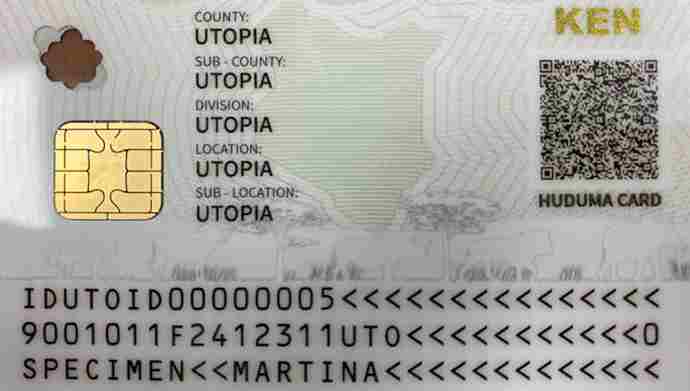A petition has been filed at the High Court of Kenya, seeking to stop the implementation of the Maisha Namba Digital Identity Ecosystem, a new system of identification for Kenyan citizens.
Haki na Sheria Initiative (HSI), a non-governmental organisation based in Garissa, Kenya, argues that the new ID system violates the rights and freedoms of marginalized communities in Kenya, who face discrimination and exclusion in accessing nationality documents.
The petition, filed on December 20, 2023, under the case number HCCHRPET/E524/2023, claims that the Maisha Namba system does not address the flaws of the previous National Integrated Identity Management System (NIIMS), also known as Huduma Namba, which was declared unconstitutional by the High Court in April 2021.
The Maisha Namba system, launched by the government on November 1, 2023, consists of four components: the Unique Personal Identification Number (Maisha Namba), the 3rd Generation National Identification Cards (Maisha Card), the Digital ID (Maisha Digital ID) and the Maisha Integrated Database.
The government says that the Maisha Namba system is based on two regulations, namely the Registration of Persons (Amendment) Regulations 2023 and the Births and Deaths (Amendment) Regulations 2023, which were gazetted on October 29, 2023.
However, HSI contends that the government did not conduct any public participation or consultation before introducing the new ID system, in violation of Article 35 of the Constitution of Kenya, which requires the state to publish and publicize any important information affecting the nation.
The petition also questions the legal status of the new ID system, noting that it is unclear whether the amendments are meant to complement or repeal the provisions of Section 9A of the Registration of Persons Act, which was the legal basis for the Huduma Namba system.
Additionally, the petition raises concerns about the privacy and security of the personal data collected and stored by the Maisha Namba system, which proposes a centralized digital ID system that could be accessed by third parties without proper safeguards, in contravention of Article 31 of the Constitution, which guarantees the right to privacy.
The petition further argues that the Maisha Namba system risks excluding and disenfranchising millions of Kenyans from marginalized communities, who face barriers and delays in obtaining nationality documents, such as birth certificates and ID cards.
According to HSI, an estimated 5 million Kenyans face discrimination, such as ID vetting, when applying for nationality documents, while an estimated 1 in 10 Kenyan adults do not have an ID card. Many of these people can spend between 5 and 20 years applying for them without a resolution.
The petition says that this situation has created multi-generational disenfranchisement and prevented many people from fully participating in the social and economic life of Kenya. The petition warns that this exclusion will likely be compounded in the new digital ID system if implemented without consideration of proper procedures for remedy.
The petition also points out that the Maisha Namba system fails to consider the rights of children from marginalized groups, who face hurdles in accessing birth registration offices, which now translates to similar challenges in obtaining the Unique Personal Identifier/Maisha Namba. The petition highlights the lack of clarity on how prior issued birth certificates will be integrated into the new digital ID system.
The petition calls on the court to issue orders compelling the government to implement affirmative action measures to ensure that minorities and marginalized groups are provided with special opportunities to participate and be represented, as per Article 56 of the Constitution of Kenya.
The petition also seeks orders declaring that the rollout of the Maisha Namba system contravenes the rights and fundamental freedoms under the Constitution of Kenya and that the issuance of identity documents to marginalized communities be prioritized before the new digital ID system is implemented.
The petitioners are represented by lawyers from the Kenya Human Rights Commission (KHRC) and the Katiba Institute (KI), two civil society organisations that have been advocating for the protection of human rights and constitutionalism in Kenya.
The respondents are the Attorney General, the Cabinet Secretary for the Interior and Coordination of National Government, the Principal Secretary for Interior and Coordination of National Government, the Director of Immigration Services, the Director of Civil Registration Services, and the Director of National Registration Bureau.
The case is expected to be heard by a bench of three judges, who will determine the fate of the Maisha Namba system and its impact on the lives of Kenyan citizens.
READ
![]()





Trackbacks/Pingbacks